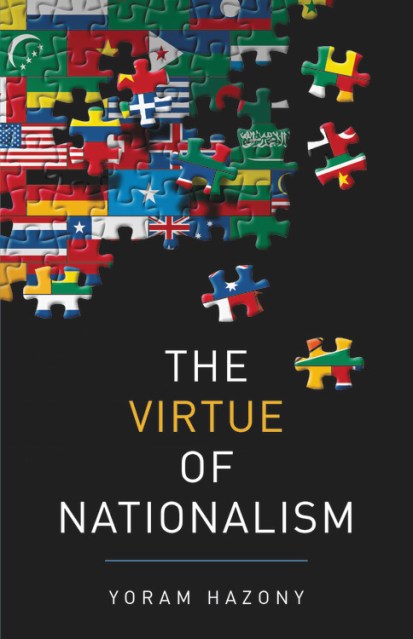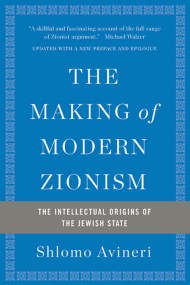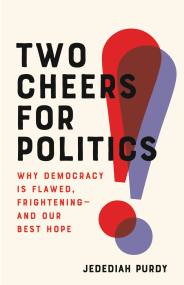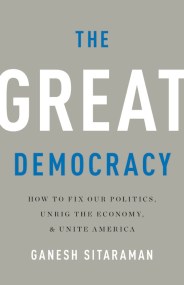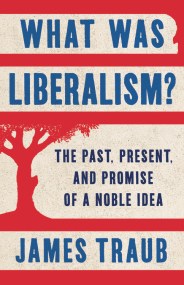By clicking “Accept,” you agree to the use of cookies and similar technologies on your device as set forth in our Cookie Policy and our Privacy Policy. Please note that certain cookies are essential for this website to function properly and do not require user consent to be deployed.
The Virtue of Nationalism
Contributors
By Yoram Hazony
Formats and Prices
- On Sale
- Sep 4, 2018
- Page Count
- 304 pages
- Publisher
- Basic Books
- ISBN-13
- 9781541645370
Price
$32.00Price
$40.00 CADFormat
Format:
- Hardcover $32.00 $40.00 CAD
- ebook $16.99 $21.99 CAD
- Audiobook Download (Unabridged) $27.99
- Trade Paperback $19.99 $25.99 CAD
This item is a preorder. Your payment method will be charged immediately, and the product is expected to ship on or around September 4, 2018. This date is subject to change due to shipping delays beyond our control.
Buy from Other Retailers:
Nationalism is the issue of our age. From Donald Trump’s “America First” politics to Brexit to the rise of the right in Europe, events have forced a crucial debate: Should we fight for international government? Or should the world’s nations keep their independence and self-determination?
In The Virtue of Nationalism, Yoram Hazony contends that a world of sovereign nations is the only option for those who care about personal and collective freedom. He recounts how, beginning in the sixteenth century, English, Dutch, and American Protestants revived the Old Testament’s love of national independence, and shows how their vision eventually brought freedom to peoples from Poland to India, Israel to Ethiopia. It is this tradition we must restore, he argues, if we want to limit conflict and hate — and allow human difference and innovation to flourish.
-
ISI Conservative Book of the Year
-
“Likely to stand out for its ambition and theoretical simplicity, providing today’s right-wing nationalists with a conceptual language for challenging their globalist rivals.”Park MacDougald, New York Magazine
-
“Wonderful… Useful and persuasive.”Michael Anton, Foreign Policy
-
“A spirited defense of nationalism and the nation-state. Although he does not ignore nationalism’s flaws, Hazony rightly contends that Western intellectuals have been too quick to dismiss it and that the topic deserves a more balanced and nuanced analysis than what the academy has offered in recent years.”Yael Tamir, Foreign Affairs
-
“An indispensable read.”Russ Vought, Newsweek
-
“The closest thing to a manifesto for intellectuals on the right.”Daniel Luban, New Republic
-
“As political philosopher Yoram Hazony explains in his vital book, The Virtue of Nationalism, globalism, the foundational rationale of the European Union is in essence an imperialist project… Hazony’s book provides the missing philosophical argument for Trump’s nationalism, and places it in the long tradition of American nationalism.”Caroline Glick, Breitbart
-
“A key text of the nationalist right.”Ian Ward, Politico
-
“A magnificent affirmation of democratic nationalism and sovereignty. The book is a tour de force that has the potential to significantly shape the debate between the supporters of supranational globalism and those of national-state democracy.”John Fonte, National Review
-
“I have rarely read anything so explosive. But it is absolutely fascinating.”Giles Fraser, UnHerd
-
“Hazony’s book is by far the most interesting and compelling articulation of the nationalist case put forward thus far.”Matt McManus, Quillette
-
"One of the most important books on one of the most important controversies of our time."New Criterion
-
"Hazony is both erudite and well reasoned."American Conservative
-
“No matter what you think of nationalism, you cannot dismiss this book.”Charles Copeland, Conservative Book of the Year Award, Intercollegiate Studies Institute, C-Span Book TV
-
“His book should cause liberals to rethink their repugnance toward nationalism, and it should prompt nationalists to reflect more deeply on the roots of their convictions.”Daniel McCarthy, National Interest
-
“An elegant, reasoned defense of the nation-state. Far from constraining individual liberty, nations provide a context in which it can flourish and gain purpose… Even critics of nationalism should welcome the challenge it offers and strive to meet it with the same fair-minded spirit rather than dismissing the phenomenon as the malevolent specter of our day.”William Anthony Hay, Law and Liberty
-
“In the late twentieth century, it became received wisdom that nations and nationalism produce intolerance, ethnic cleansing, war, and genocide… In The Virtue of Nationalism, Hazony offers a bold counternarrative. His most striking claim is that any world government will necessarily be intolerant because ours is a world of diverse cultures.”Diana Muir Applebaum, American Affairs
-
“An incredibly provocative read.”Russ Roberts, EconTalk
-
"[Hazony] cogently argues in the book that anyone who values his freedom should reject universalism and fight for a future of nations... [an] excellent book."City Journal
-
“His case is persuasive, and this book will be invaluable.”Henry George, Marion West
-
“Yoram Hazony is the first such thinker to provide a sustained theoretical argument for the revived spirit of nationalism. The Virtue of Nationalism is a brilliant achievement, at once learned and sharp, philosophical and politically engaged .”Christopher DeMuth, Jewish Review of Books
-
“A concise, thoughtful, strongly put case that resurgent nationalism is reason not for concern, but for relief.”Ira Stoll, New York Sun
-
"Hazony presents a vigorous case for nationalism and its virtues."National Interest
-
"The catastrophic failure of the liberal program opens the way for a new kind of political thinking, and Hazony offers a timely contribution to the debate."Tablet
-
"Important.... Hazony continues to do a service in reviving the theory of nationalism at a moment when its empirical manifestations have become impossible to ignore. He also presents a model of engaged political philosophy--learned yet accessible, spirited but not excessively hostile."Modern Age
-
“Perhaps the most influential text of the moment.”Matthew D'Ancona, The New European
-
“The most original and substantive critique of empire among today’s thinkers.”Balázs Orbán, European Conservative
-
“The experience of reading Hazony’s book was like breathing fresh air. The arguments are stated not only clearly, but without those inhibitions and reservations that one encounters today in a public space that is infected by political correctness.”Ryszard Legutko, Hungarian Review
-
“One cannot but admire, not only the scholarship and profundity, but the boldness and candidness that one comes across in this refreshingly stimulating defense of nationalism.”Ram Madhav, India Foundation
-
"The pulse of America under President Donald Trump? Hazony has set its rhythm."Stefan Kornelius, Suddeutsche Zeitung (Germany)
-
"A thought-provoking book."Publishers Weekly
-
“Phenomenal… He’s a genius.”Michael Savage, Savage Nation
-
"In an era when the word 'nationalism' falls on many ears as an insult and condemnation, Yoram Hazony recalls the ancient, essential, and even noble origins of the nation. I expect and hope this provocative and deeply learned book will incite fierce debate, but the depth and persuasiveness of its defense of the virtue of nations will demand engagement by every reader concerned with serious political ideas. Hazony masterfully blends a deep grasp of history, political philosophy, theology, and common sense with originality and clarity in what will be one of the most-discussed books of this dawning new age of the nation."Patrick Deneen, professor of political science, University of Notre Dame, and author of Why Liberalism Failed
-
"In this engaging and deeply learned book, Yoram Hazony explores the religious and historical roots of nationalism, illuminates its modern accomplishments, and thereby offers a uniquely insightful guide to the forces transforming the politics of the West."Yuval Levin, editor of National Affairs and author of The Fractured Republic
-
"To cosmopolitans on the right and left, the division of the world into sovereign nation-states is a lamentable fact we must strive to overcome. In The Virtue of Nationalism, Yoram Hazony demonstrates that it is in fact essential to human flourishing."Reihan Salam, executive editor, National Review
-
"Yoram Hazony's book is profound as well as accessible and well-crafted, reflecting years of inquiry and reflection into a subject of unparalleled importance. Political figures, scholars, and the broader public will have to think carefully about this remarkable book."Natan Sharansky, author of The Case for Democracy and Defending Identity
-
"In a time when nationalism is all too often conflated with racism and authoritarianism, Yoram Hazony reminds us that democracy and liberty can flourish only in a world of sovereign nation-states."Michael Lind, author of The Next American Nation
-
"Yoram Hazony's The Virtue of Nationalism belongs among the great works of political theory. Hazony presents a radical, even dangerous thesis: what if nationalism is not the scourge that today's left views it as, but rather the best hope humanity has? The Virtue of Nationalism mounts a necessary challenge to the liberal order of the day."Batya Ungar-Sargon, opinion editor of The Forward
Newsletter Signup
By clicking ‘Sign Up,’ I acknowledge that I have read and agree to Hachette Book Group’s Privacy Policy and Terms of Use
